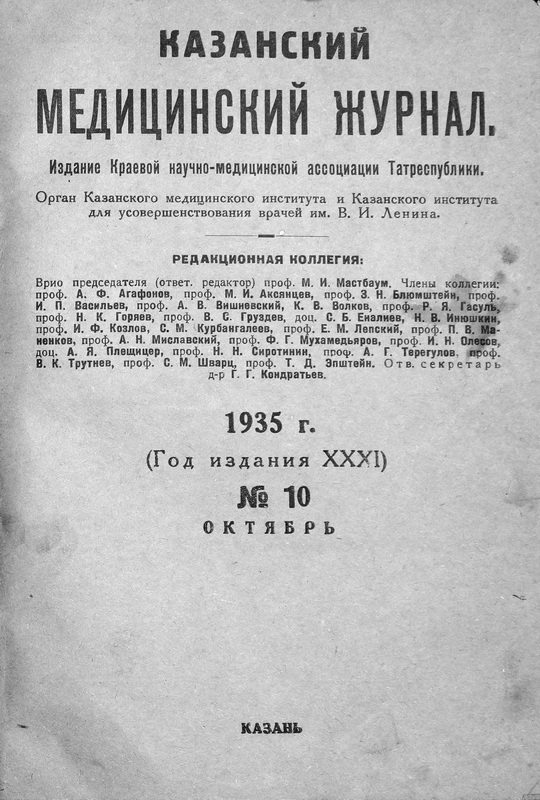К вопросу о передаче малярии комарами зимой
- Авторы: Colins R., Drenski К.
- Выпуск: Том 31, № 10 (1935)
- Страницы: 1226-1226
- Раздел: Статьи
- Статья получена: 09.12.2020
- Статья одобрена: 09.12.2020
- Статья опубликована: 13.10.1935
- URL: https://kazanmedjournal.ru/kazanmedj/article/view/54500
- DOI: https://doi.org/10.17816/kazmj54500
- ID: 54500
Цитировать
Полный текст
Аннотация
Авторы изучали поставленный ими вопрос в течение одного года и пришли к следующим выводам. 1) Малярийный паразит может перезимовать в теле комара и в этих случаях обнаруживается при препаровке насекомого. 2) Инфекционность комаров зимой выше, чем летом. 3) Инфицированные An. maculipennis содержат по преимуществу спорозоиды и могут следовательно инфицировать человека в течение зимы и весны.
Ключевые слова
Полный текст
(Arch. f. Schiffs u. Tropenhyg., Bd. 38, 1934).
Авторы изучали поставленный ими вопрос в течение одного года и пришли к следующим выводам. 1) Малярийный паразит может перезимовать в теле комара и в этих случаях обнаруживается при препаровке насекомого. 2) Инфекционность комаров зимой выше, чем летом. 3) Инфицированные An. maculipennis содержат по преимуществу спорозоиды и могут следовательно инфицировать человека в течение зимы и весны. Последний факт дает авторам основание считать, что кратковременные весенние эпидемии трехдневной лихорадки вызваны перезимовавшими An. maculipennis. П. Р.
Об авторах
R. Colins
Автор, ответственный за переписку.
Email: info@eco-vector.com
Германия
К. Drenski
Email: info@eco-vector.com
Германия
Список литературы
Дополнительные файлы







